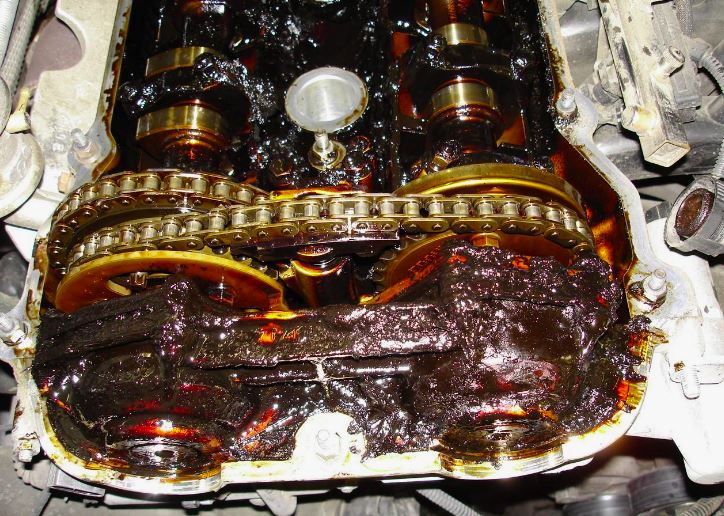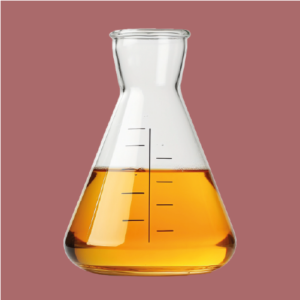Anti-Wear Additives in Engine Oil: Protecting Engine
Engine oil is the lifeblood of your vehicle, playing a crucial role in reducing friction, cooling engine components, and preventing wear and tear. One of the key elements that contribute to the effectiveness of engine oil is the presence of anti wear additives in engine oil. These chemical compounds are specifically designed to protect engine parts from excessive wear, ensuring the longevity and performance of your vehicle. Here, we’ll delve into the world of anti-wear additives in engine oil, exploring their types, benefits, and how they work to safeguard your engine.
What Are Anti-Wear Additives?
Anti-wear additives are chemical compounds added to engine oil to reduce friction and wear between metal surfaces in an engine. As the name suggests, these additives form a protective layer on metal components, preventing direct metal-to-metal contact that can lead to wear, overheating, and ultimately, engine damage. They are especially important in modern engines, which operate at higher temperatures and pressures than older models.
How Do Anti-Wear Additives Work?
Anti wear oil additives work by creating a thin, protective film on the surface of engine components. This film reduces friction and prevents metal surfaces from coming into direct contact with each other. When the engine is running, the pressure and heat generated cause the additives to react chemically, forming a protective barrier that withstands high loads and temperatures.
One of the most common anti-wear engine oil is zinc dialkyldithiophosphate (ZDDP). ZDDP decomposes under heat and pressure, forming a protective phosphate glass layer on engine parts, which acts as a shield against wear.
Types of Anti-Wear Additives
There are several types of anti-wear additives used in engine oils, each with its unique properties and applications:
Zinc Dialkyldithiophosphate (ZDDP): As mentioned earlier, ZDDP is one of the most widely used anti-wear additives. It provides excellent protection against wear and oxidation, making it a staple in many engine oils.
Molybdenum Disulfide (MoS2): Known for its lubricating properties, MoS2 forms a solid film that reduces friction between moving parts. It is particularly effective in high-pressure environments.
Phosphorus-Based Additives: These additives are used to reduce wear in engine components by forming a protective layer that prevents metal-to-metal contact. They are often used in combination with ZDDP.
Boron-Based Additives: Boron-based compounds provide anti-wear protection and also help to reduce friction. They are known for their ability to form a durable, protective layer on metal surfaces.
Calcium Sulfonate: This additive not only offers anti-wear protection but also helps to neutralize acids formed during combustion, thus protecting engine parts from corrosion.
The Role of Anti-Wear Additives in Modern Engines

Modern engines are designed to deliver more power while being more fuel-efficient, which often means they operate at higher temperatures and pressures. This increase in engine stress makes anti-wear additives more critical than ever. Here’s how these engine anti wear protectant play a vital role in modern engines:
High Temperature Protection: Anti-wear additives protect engine parts from the increased heat generated by modern engines, preventing breakdowns due to thermal stress.
High Pressure Tolerance: As engines operate at higher pressures, the risk of metal-to-metal contact increases. Anti-wear additives help mitigate this by forming a protective barrier between metal surfaces.
Fuel Efficiency: By reducing friction, anti-wear additives contribute to improved fuel efficiency. Less friction means the engine requires less energy to operate, which can translate to better gas mileage.
Extended Engine Life: Regular use of engine oil with anti-wear additives can significantly extend the life of your engine by reducing wear and tear on critical components.
Benefits of Using Engine Oil with Anti-Wear Additives
The use of engine oil containing anti-wear additives offers numerous benefits for your vehicle’s engine:
Reduced Engine Wear: The primary benefit is the reduction in wear on engine components, which helps maintain engine performance and prevent costly repairs.
Enhanced Engine Protection: Anti-wear additives provide an additional layer of protection against the harsh conditions inside the engine, such as high temperatures and pressures.
Improved Fuel Economy: By minimizing friction between moving parts, these additives can contribute to better fuel economy, saving you money at the pump.
Lower Maintenance Costs: With reduced wear on engine components, the need for repairs and replacements is minimized, leading to lower maintenance costs over the life of the vehicle.
Prolonged Oil Life: Engine wear additives can also help extend the life of the engine oil itself by reducing the rate at which the oil degrades, meaning you can go longer between oil changes.
How to Choose the Right Engine Oil with Anti-Wear Additives
Choosing the right highly effective anti wear protectant for engines oil with anti-wear additives involves considering several factors:
Vehicle Manufacturer Recommendations: Always refer to your vehicle’s owner manual to see the recommended type of engine oil. Using oil with the appropriate anti-wear additives can ensure optimal engine performance.
Driving Conditions: If you frequently drive in extreme conditions, such as towing heavy loads or driving in very hot or cold environments, you may benefit from an engine oil with enhanced anti-wear protection.
Engine Type: Different engines may require different types of anti-wear additives. For example, high-performance or turbocharged engines may benefit from specific additives that provide extra protection under high stress.
Oil Grade: The viscosity of the engine oil also plays a role in how well it can protect your engine. Ensure the oil grade you choose is appropriate for your vehicle’s engine and the climate in which you drive.
Environmental Impact of Anti-Wear Additives
The environmental impact of anti-wear additives is an important consideration in today’s world. Here’s how they affect the environment:
Reduction in Engine Wear: By reducing engine wear, anti-wear additives help engines run more efficiently, which can result in lower emissions.
Extended Oil Life: Anti-wear additives can extend the life of engine oil, reducing the frequency of oil changes and the amount of waste oil generated.
Biodegradability: Some modern anti-wear additives are designed to be more environmentally friendly, breaking down more easily and reducing their impact on the environment.
The Future of Anti-Wear Additives
As engine technology continues to evolve, so too will the technology behind anti-wear additives. The future of these additives lies in developing formulations that offer even greater protection while being more environmentally friendly. Advances in nanotechnology, for example, are leading to the creation of ultra-thin protective films that can provide superior wear protection without the need for large quantities of additive.
Additionally, as electric vehicles (EVs) become more prevalent, the role of anti-wear additives may shift. While EVs do not have traditional internal combustion engines, they still have components that require lubrication and protection from wear, such as the electric motor and transmission.
Conclusion: Are Anti-Wear Additives Essential?
In conclusion, anti-wear additives in engine oil are essential for protecting your engine from the wear and tear of everyday driving. Whether you drive a high-performance sports car or a family sedan, using engine oil with the right anti-wear additives can help extend the life of your engine, improve fuel efficiency, and reduce maintenance costs. As engine technology continues to advance, the importance of these additives will only grow, making them a crucial component in maintaining the health and performance of your vehicle.
When choosing an engine oil, be sure to consider the type of anti-wear additives it contains and how they align with your vehicle’s needs. With the right oil and additives, you can drive with confidence, knowing your engine is protected against the rigors of the road.
FAQs

Which UAE Lubricants manufacturers is Best for High-Mileage Engines?
Which UAE Lubricants manufacturers is Best for High-Mileage Engines? Discover More The sprawling deserts and bustling metropolises of the United Arab Emirates present a uniquely demanding environment for vehicles, pushing engine lubrication technology to its absolute limits. From the scorching summer heat that can cause conventional oils to thin out and lose protective properties, to the endless stop-start traffic of cities like Dubai and Abu Dhabi that promotes sludge and acidic buildup, our cars endure a severe service regimen unlike

What Vehicles Use Kerasene? A Comprehensive Guide
What Vehicles Use Kerasene? A Comprehensive Guide to Fueling Beyond Gasoline Discover More When we think of vehicle fuel, gasoline and diesel immediately come to mind. They are the lifeblood of our daily commutes, the power behind the trucks that deliver our goods, and the standard by which we measure automotive progress. But venture beyond the everyday, into the realms of high-altitude aviation, rugged agricultural machinery, and groundbreaking space exploration, and you’ll discover a different, equally vital fuel that operates

How To Chose Antioxidant Additives in UAE | Industrial Grade Chemicals?
How To Chose Antioxidant Additives in UAE | Industrial Grade Chemicals? Discover More In the heart of a rapidly industrializing region, the United Arab Emirates stands as a beacon of manufacturing, logistics, and heavy industry. From the sprawling automotive workshops of Dubai to the massive petrochemical complexes in Ruwais, the performance and longevity of machinery are paramount. At the core of this operational excellence lies a critical, yet often overlooked, component: industrial lubricants and fluids. These lifeblood substances are constantly

Viscosity Index Improvers UAE – Improve Lubricant Performance
Viscosity Index Improvers UAE – Improve Lubricant Performance Discover More In the heart of the United Arab Emirates, where ambition is matched only by the scale of its infrastructure, the machinery that builds and powers the nation faces a relentless adversary: the climate. The combination of extreme heat, temperature volatility, abrasive dust, and intense UV radiation creates a perfect storm of conditions that relentlessly attack the lifeblood of all mechanical systems—the lubricant. For maintenance managers, plant operators, and fleet owners,

Compressor Oils UAE | Lubricants for Air Compressors
Compressor Oils UAE | Lubricants for Air Compressors Discover More In the relentless engine of the UAE’s economy, where ambition is matched only by the scale of its construction and industry, air compressors are the indispensable workhorses. They are the silent force driving the pneumatic tools that build our skylines, the automated machinery in our factories, the climate control systems in our buildings, and even the processes in oil and gas refineries. Yet, within these critical machines, a component often

How to Chose Best Diesel Engine Oil in UAE for Your Vehicle | Get Quote
Guide to Choosing the Best Diesel Engine Oil in UAE For Your Vehicle Discover More In the United Arab Emirates, the relationship between a driver and their vehicle is forged in fire. The unrelenting sun, the searing asphalt, and the ever-present fine sand create an operating environment that is among the most punishing on Earth. For the diesel engines that power the UAE’s growth—from the rugged Land Cruisers conquering dunes to the Ford F-150s on city streets and the fleets

What Are the Latest Trends in Sustainable Industrial Oils for UAE Manufacturers?
What Are the Latest Trends in Sustainable Industrial Oils for UAE Manufacturers? Discover More Industrial oils form the lifeline of heavy industries, enabling machines, turbines, compressors, and production lines to function seamlessly. They reduce friction, cool equipment, prevent wear, and ensure uninterrupted operations. In a fast-developing economy like the UAE—where energy, petrochemicals, construction, and manufacturing drive growth—industrial oils are indispensable. But today, the conversation around industrial oils is no longer limited to performance. Global concerns about climate change, carbon emissions,
